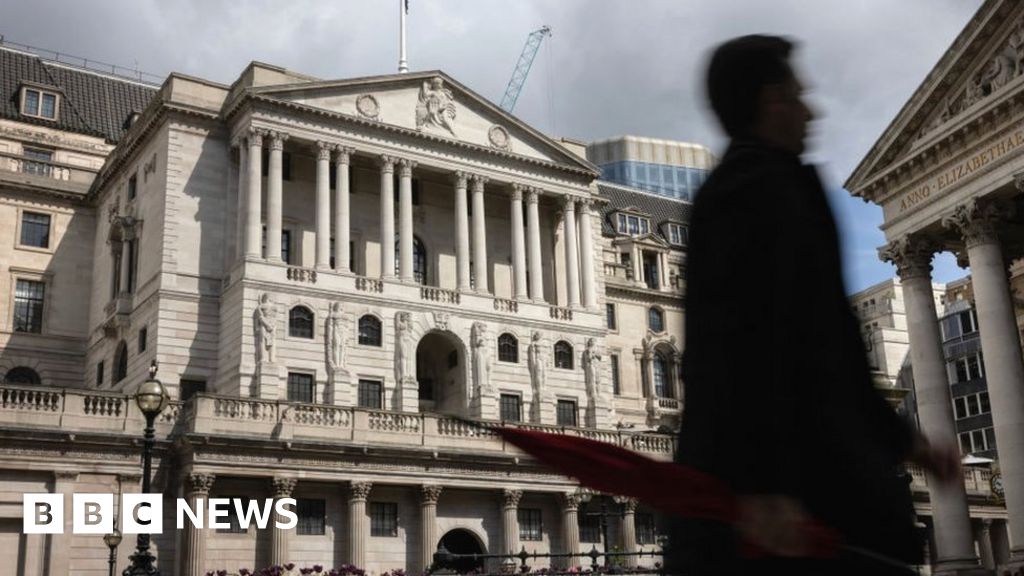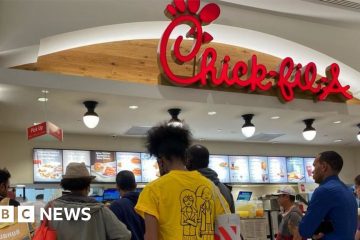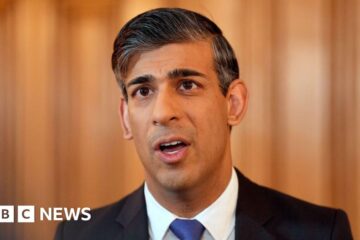Investors are split over whether interest rates will be raised again on Thursday after figures showed a surprise slowdown in price rises.
A 15th rise in a row to 5.5% from 5.25% was widely predicted, but now only half of investors are predicting a rise.
Expectations changed after inflation, which is the rate prices rise at, was revealed to have fallen unexpectedly to 6.7% in the year to August.
Expectations changed after inflation, which is the rate prices rise at, was revealed to have fallen unexpectedly to 6.7% in the year to August.
Any rise would mean higher interest rates on some mortgages and loans, but also higher savings rates.
The Bank has been hiking rates since December 2021 in an effort to tackle inflation in the UK, which is much higher than usual and putting households under financial pressure.
By making it more expensive for people to borrow money, it hopes households will cut back and buy fewer things.
It also might mean that firms will raise prices less quickly.
But it’s a tricky balancing act as raising rates too aggressively could cause people to cut back on their household spending which could see firms struggle for survival and economic growth slow.
Investors are split over whether interest rates will be raised again on Thursday after figures showed a surprise slowdown in price rises.
Expectations changed after inflation, which is the rate prices rise at, was revealed to have fallen unexpectedly to 6.7% in the year to August.
A 15th rise in a row to 5.5% from 5.25% was widely predicted, but now only half of investors are predicting a rise.
Any rise would mean higher interest rates on some mortgages and loans, but also higher savings rates.
Expectations changed after inflation, which is the rate prices rise at, was revealed to have fallen unexpectedly to 6.7% in the year to August.
Expectations changed after inflation, which is the rate prices rise at, was revealed to have fallen unexpectedly to 6.7% in the year to August.
Any rise would mean higher interest rates on some mortgages and loans, but also higher savings rates.
The Bank has been hiking rates since December 2021 in an effort to tackle inflation in the UK, which is much higher than usual and putting households under financial pressure.
By making it more expensive for people to borrow money, it hopes households will cut back and buy fewer things.
It also might mean that firms will raise prices less quickly.
But it’s a tricky balancing act as raising rates too aggressively could cause people to cut back on their household spending which could see firms struggle for survival and economic growth slow.
#interest #rate #rise #bets #slashed #inflation #fall
Note:- (Not all news on the site expresses the point of view of the site, but we transmit this news automatically and translate it through programmatic technology on the site and not from a human editor. The content is auto-generated from a syndicated feed.))



